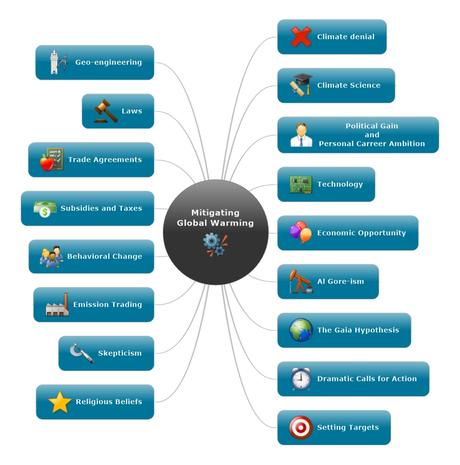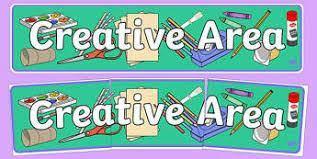In an earlier post, we made an inventory of mainstream approaches to mitigating global warming. For reference, see the mind-map below. In this post, we will try to escape from the usual taken-for-granted concepts for mitigating global warming.

Emergent escape possibilities
 Escape from existing approaches
Escape from existing approaches
Having summarized existing approaches, could we escape from those and find fresh approaches to mitigate or even counteract the effects of climate change?
Try to come up with at least three ¨escapes¨: alternative approaches to mitigate global warming.
Do not strive for accuracy or completeness. Only show a rough direction in which, you expect we can find alternative approaches.
Idea Sensitive Points
Below some escapes from dominant approaches, we came up with. They are Idea Sensitive Points or Areas, as Edward de Bono would call them:

¨Sometimes a new idea can make a big difference. These points are ‘sensitive’ to new thought. There is a need to identify such points and then to generate ideas around those points. There needs to be a formal effort to do this. Assuming that someone will do it is not good enough. ISPs are unused assets. To leave them unused does not make good sense ¨.
Our Efforts:

Locked-in situation and transition costs. A lock-in is a situation, also known as path-dependence where a change in operations would have enormous transition costs. This is about system innovations. F. i. the transition from freight transport by lorries to freight ships by inland waterways destroys capital and has significant costs to build adequate infrastructure. It also changes the economic metric in the business system..
Outdated Way of Thinking.

Our daily thinking–the way we think in normal life–is outdated. We base our thinking, behaviors and acting on simple linear mono-causal Newtonian thinking, dating back to the 1700s. We haven´t yet incorporated in our daily thinking habits novel approaches that originate from developments in advanced mathematics and physics, and, more recently, systems dynamics.
A tree economy

All ideas about global warming put human survival and the human economy at the center. What if we changed the perspective and look at solutions from the perspective of a bat, a dandelion or a tree? What is a good tree economy? Could we learn something new about global warming? Could we find solutions?

Personal criminal liability of company boards.
Currently, companies that break rules are getting away with fines, which they can recover from their shareholders and customers. Responsible Directors, regardless they knowingly violate laws, remain immune from personal criminal prosecution.

Native thinking and language categories. It is said that Native indians had weird rituals to decide in what area they would hunt. The effect of this was that they divided the hunt randomly over all possible hunting areas, so preserving a natural equilibrium of the wild, a sustainable survival technique.
Researchers asked two children, one Western and one native Indian to look around on the farm and to mention: ¨What belongs together? ¨. The Western educated girl mentioned:
- Farmer, peasant woman, servant,
- …Then: barley, oats, corn, sugar cane.
- Then lettuce, onions, carrots, beets, potatoes.
- Then: acorn, chestnut, walnuts, almonds, pecans, cashews, etc.
The Native Indian said: Harvest, farmer, seed, rake, soil, water, sun, germ, plant, fruit, harvest. The categorizing of the world around her totally different, and, perhaps, reflecting a totally different way of thinking. Perhaps one could name it as holistic. And what is the difference with the Western girl?

Western soil scientists have developed a soil classification system that is sensitive for the restrictions and potentialities the soil will show for modern agriculture. However, the Xicrins, an indigenous people living in the Amazon forest, developed a totally different classification system to describe their soil. It internalizes a functional analysis, i.e. what each soil classification category means for Xicrins’ life and how these categories relate with plants, animals and water. Nature, and not agriculture, is at its heart.

Ultra Solutions. Ultra-Solutions, first coined by Paul Watzlawick, are solutions that in a previous situation worked brilliantly or at least satisfying. Then one tries the solution in another context and it turns into the opposite. The solution turns out to be worse than the disease. F. i. Electric cars save the city air because they emit less CO2. But large and heavy electric cars can produce even more non-engine-related harmful particulate matter than cars with a combustion engine. Or enormous areas of forest from the Baltic States disappear into incinerators. We burn the trees as biomass, a controversial but heavily subsidized alternative to coal for electricity factories.
Economic thinking as a socially imposed norm
We imbue our culture with economic norms and management thinking. We approach every problem – including global warming – as an issue of a monetary matching between supply and demand (Neo-classical economics) and how to get results with minimal costs in which everything revolves around shareholder value. This kind of thinking undermines society and more often than not is at odds with social and human values.

The doctrine of the economic theory has seeped into all levels of society. Every student, not only in economics but also in law, sociology, business, and technical studies are indoctrinated by the same inadequate theory of independent agents who transact rationally, or should do that, as a socially imposed norm.
It could just be that this dominant thinking behind our actions, neglect and spending perpetuates the problem of global warming and sustainability. Financial principles in mitigating global warming predominate. Governments left investments in renewable energy to market parties. Is it about business cases or public considerations?
As vague as it may be, we need to find different ways of our daily ¨normal¨ thinking neo-classical thinking routines about how to manage and spend our money and how to get things done. Better ideas requested urgently.
How To Proceed?
Take one of your escapes or Idea Sensitive Points. What should be the output of your thinking effort? Then lay out all the thinking steps in a systematic way. Look for analytical or creative thinking techniques that may help you with systematizing your thinking process and make an effective outcome more predictable.
Related posts
Daily Thinking Habits. The most remarkable feature of Daily Thinking is it mechanical nature. In Daily Thinking seldom is taken into account that there might be a feedback effect. Our Daily Thinking habits are far remote from thinking in system dynamics, complex networks or system theory. Although these thinking strategies originates back to 1950-1960s, we still continue thinking “Newtonian” in our daily practice.
Language is not innocent: how we create thinking patterns. Language is not innocent, it determines how we interpret reality. Words create logic bubbles that are difficult to escape from. The way we use words may prevent us from finding solutions, restrict new ideas, and lead to wrong public policies.
Thinking in Analogies. Many teachers in analytical/critical thinking and writing clearly forbid students the use of analogies, because, in one sense, all analogies are faulty. However, as George Lakoff, known for his thesis that the lives of individuals are significantly influenced by the central metaphors they used to explain complex phenomena, convincingly argues that all our thinking is metaphorical.
Banging “the World” into Sorting Boxes. We can’t live without Thinking Boxes, but the boxes also limits our thinking, and therefore, our possibilities. Perhaps, we need here and there some fresh boxes.
What Kind of Thinking Situation Is This? To get a good focus, it is helpful to ask for ourselves what kind of thinking wa are in, what the context of the thinking is, or what the thinking situation is. For every thinking situation mentioned above exist a well defined thinking road map. However, it is far better to design your own thinking road map because it will help you to “get grips upon the thinking task”.
Thinking Strategies: It’s Time to Plan the Thinking. Thinking Strategies are process designs for thinking. It gives you a global approach for thinking. Thinking Strategies allow you to make a map of the thinking situation before you enter the area. It allows you Thinkibility-on-the-Spot.
How to Fail Most Successfully. We use old ideas in new situations with no proper examination of risks and potential problems. The attention focusses on a unique positive effect, at the same time neglecting negative effects, risks and potential problems.
Training in Economics is a Serious Handicap. The doctrine of the economic theory has seeped into all levels of society. Every student, not only in economics but also in law, sociology, business, and technical studies are indoctrinated by the same inadequate theory of independent agents who transact rationally, or should do that.
